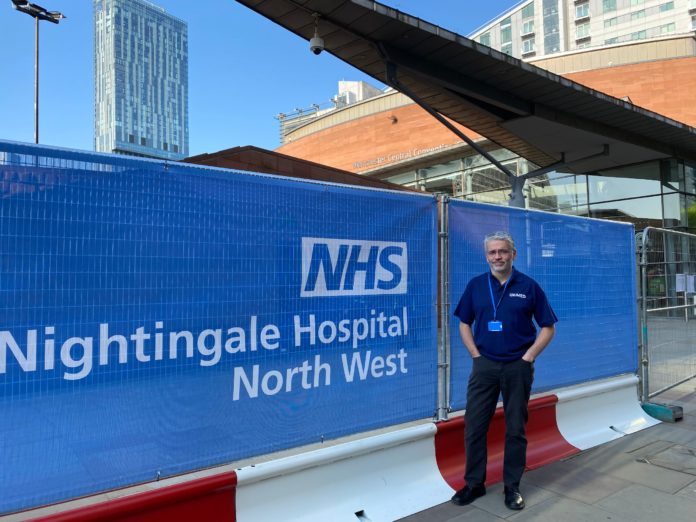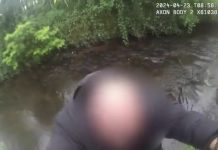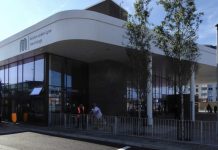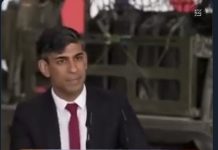A nurse has told how his experiences tackling an Ebola outbreak in Sierra Leone are helping him now spearhead the battle against coronavirus at the newly opened Manchester Nightingale field hospital.
David Anderson has worked on UK aid responses around the world and encountered terrifying scenes when he was deployed to Sierra Leone to assist with the world’s worst Ebola outbreak in December 2014.
The 51-year-old has returned from preparing South Africa for its COVID-19 response with a UK Government funded Emergency Medical Team to take on a role as Director of Quality and IPC at NHS Nightingale Hospital North West.
On Friday, Health Secretary Matt Hancock opened the 648-bed facility which is up and running just two weeks after work began on it at the Manchester Central Convention Centre.
Montrose-born David – seconded from his job as a Humanitarian Health Advisor with the UK-Med charity – believes that expertise gained from dealing with the West Africa Ebola epidemic in 2014-2015 will prove crucial in getting on top of COVID-19.
He explained: ““Ebola had a mortality rate of 80 per cent when I arrived in Sierra Leone and there were some horrendously dark days.
“I have had the privilege of working around the world in many different contexts with some special individuals and teams, although, I never believed my outbreak experience gained with UK-Med would be required in the UK.
“Working at NHS Nightingale North West has been one of the most spectacular examples of teams from all sectors working together to deliver, in the shortest of timescales, a facility which can deliver the highest possible level of care to the wonderfully diverse population in the North West.
“It is and has been inspiring to work with colleagues to ensure we can and will deliver the highest possible level of care in these most challenging of conditions.
“My endearing wish is that the Nightingale facilities will never be required to operate fully, as this will mean that we have contained COVID-19, and limited this most difficult of diseases.”
The Department for International Development (DFID) has so far pledged £744million to halting the global spread of the disease.
For years, DFID has worked with UK-Med and other partners to send brave British nurses and doctors abroad to humanitarian disasters to help contain outbreaks – and David believes the lessons medics have learned will play a crucial part in helping the NHS deal with COVID-19.
He said: “The experience and expertise that we have gained from battling outbreaks like Ebola will be invaluable to beating coronavirus.
“UK aid helped develop the Ebola vaccine and that has been a game-changer in dealing with the Ebola threat in the most recent outbreak in DR Congo.
“The research already done on previous coronaviruses like MERS and SARS and lessons learned will also give us a good grounding to develop a potential vaccine for COVID-19.
“In 2014 I worked in an Ebola treatment centre with 106 patients and 80 per cent of them were dying. One of my worst days was I went out to a small clinic and picked up two 24-day-old twins, who both turned out to have Ebola and died on their 25th day.
“That work has prepared me mentally for dealing with COVID-19 and it does help you understand how to respond, particularly in terms of preventative measures to protect health workers and the wider community.
“At the moment coronavirus has a mortality rate of around three per cent. We can – and we will – beat this.”
David, who now lives in Rutland, East Midlands, last year helped with the international response to cyclones Idai and Kenneth in Mozambique, carried out Ebola preparedness work in Rwanda, led efforts to deal with the measles outbreak in Samoa and also carried out deployments to crisis countries South Sudan and Myanmar.
His humanitarian work abroad gave him a grim taster of what NHS medical staff are now facing.
The nurse said: “Clearly there will be a lot of healthcare professionals that will be facing an outbreak of this kind for the first time.
“It is always tough as a frontline worker whether it be Ebola, H1-N1, SARS, or COVID-19. It’s physically demanding and emotionally draining, so it can be quite difficult for individuals.
“As we have tragically seen with coronavirus, health workers working their hardest to prevent the spread have died, but there is always a risk associated with medical care.
“Something like this outbreak brings it into sharp focus with the public, but for NHS nurses and doctors, part of what we do is put our health on the line to do our job.
“You cannot help but to occasionally feel unwell and fear the worst, especially as the response goes on and you become more and more tired doing long days of really exhausting work.
“I don’t think there was a single individual who went to the red zone in Sierra Leone and didn’t at one time think they possibly had Ebola. The first week, I just woke up feeling unwell, bad stomach, thought I had a slightly increased temperature, but as it turned out I clearly did not have Ebola.”
David knows that it will be a particularly worrying time for the families of health workers.
He said: “I’ve never seen anything like this in my lifetime and hopefully we never see anything like it again.
“We all have a chance of getting this disease and that’s the truth. When I went out to Sierra Leone for four-and-a-half months as part of the Ebola response, my family were pretty scared. Who wouldn’t be? It was Ebola.
“It is only natural for your nearest and dearest to be worried, but they understand that other families are relying on health workers like me to help protect their mothers, sisters or nextdoor neighbours.”
DFID has so far committed £744million of UK aid to the global fight against coronavirus – making the UK one of the biggest donors to the international response.
And David said: “The world needs to work together and share all our expertise to contain this. No matter whether you are South African, from New Zealand, Australia, Ghana, or Serbia, this germ does not respect borders. This disease does not suddenly get to the border between France and Germany and go ‘I’m not crossing there’. If we don’t help each other then this is not going to go away.”
International Development Secretary Anne-Marie Trevelyan said: “I am proud that brave EMT medics like David are using the expertise and experience gained from responding to humanitarian crises around the world, to help our NHS in the fight against coronavirus.
“This shows how using UK aid to provide medical expertise to the poorest countries to tackle health crises like Ebola also helps the UK. Not only have our brave doctors and nurses saved many lives worldwide, but they have gained knowledge and skills that are now proving crucial in combating coronavirus back home.







